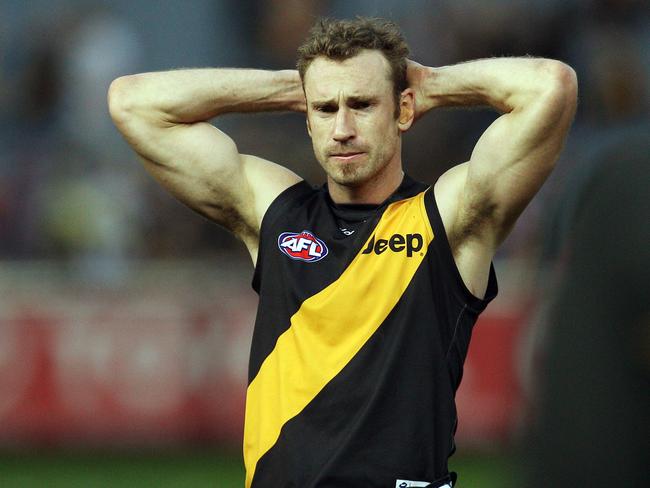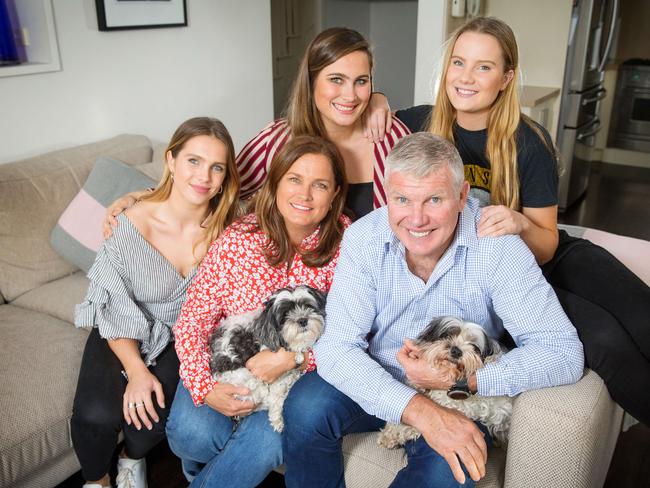Anita Frawley: ‘We must act now to reduce instances of this happening to other families in the future’
Relatives of late AFL footballers Danny Frawley and Shane Tuck want more support for the Australian Sports Brain Bank to research repeated head trauma.
Victoria
Don't miss out on the headlines from Victoria. Followed categories will be added to My News.
The families of late AFL footballers Danny Frawley and Shane Tuck have opened up about their heartbreak, demanding more support for the Australian Sports Brain Bank to research repeated head trauma.
The AFL’s top doctor on Wednesday acknowledged the culture of under-reporting head knocks among athletes needed to improve, as he was grilled by a senate committee on how the sport is protecting players from the potentially deadly consequences of concussion.
In an emotional statement, Anita Frawley spoke of her family’s grief after her St Kilda legend husband died when his car hit a tree in 2019.
Ms Frawley recalled the “incredible stress” of living with someone who had chronic traumatic encephalopathy or CTE.

“I remember standing in our kitchen with fear in my eyes looking at my husband and just thinking, I don’t know this man and who he is,” she said.
“Our lives will forever be touched by sadness, even in our happiest times. We must act now to reduce instances of this happening to other families in the future.”
Ms Frawley reinforced her push for more athletes to donate their brains for research so families would have more answers, and urged the AFL to make its no-fault compensation support scheme a reality.
“What could be of a higher priority for the competition than looking after the individuals on whose shoulders the success of the game now stands?” she said.
Renee Tuck said her brother Shane, who died aged 38 with the worst case of CTE seen by the Australian Sports Brain Bank, had no quality of life in the end. “It was probably one of the most traumatising and awful things I will ever witnessed in my life … to watch a young man be taken away physically, mentally,” she said.

“He was a goner. His brain was rotting on him. It was dying out like an electro field would have water over it. He was just fizzling out. No one really needs to ever go through that ever again.”
She called for the brain bank to receive more funding, saying the answers from the donation of Tuck’s brain helped them heal.
The league’s chief medical officer, Michael Makdissi, was one of three AFL heavyweights who fronted the inquiry. Witnesses said the AFL’s concussion management hadn’t been good enough, and claimed the sport wanted to get players back on the field as quickly as possible.
Dr Makdissi said the sport took head injuries seriously, noting about 70 to 80 AFL players sustained a concussion each year.

He said AFL players were more likely to report head injuries and concussions than they once were, but there was still a culture of under-reporting. “We’re trying to tackle that with education, but also improving our recognition of concussion on the sidelines,” he said.
“I’ve seen quite a shift in that culture. I don’t think we’re there yet. We need some continued education … we need to be working with the (AFL) Players’ Association on that.”
The inquiry heard the last collective bargaining agreement – which the AFLPA is now renegotiating – included a $4m annual fund for career-ending injury payments of up to $500,000, including for concussion.




